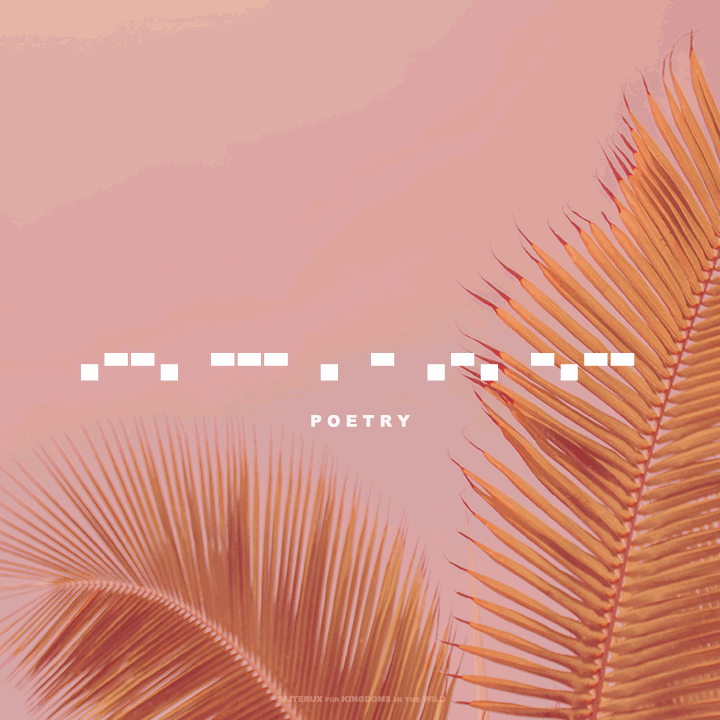2019 / poetry / author
CHEYANNE BRABO
GIVE ME NO SIGNS
…
I asked for an omen for weeks on end,
Until my lips chapped with the effort of begging.
On the fifth day of longing, I begrudgingly conceited.
When I went to rest my weary head,
A neon church bulletin came hurtling from above
To slam me like a bug on the windshield of a mack truck.
“There are some you cannot drag into Heaven.” It said.
“Those people are not destined for the Devil, just not destined
For you.” And I swallowed another spoonful of cotton.
In the bookstore, three novels and a magazine
Spelled out my spouse's last name and the initial of our child
And I tried to force coincidences, just to see if I could.
But a gift is hard to rehome once it’s been given.
Nothing indifferent was to ever happen to me again.
I got in arguments ordained by our very creators.
What was that life? I didn’t know. I was a footstone.
I was allowed to conduct botched experiments on myself,
The outcome always being something I previously divined.
Every road I took became something I’d seen before,
Whether it be in a dream or - the much less unappreciated -
Product of my wishes that I whispered, like prayers at night.
Anyway, we people are not allowed to live that way for long
Not unless our flesh has weathered, or our souls are far away;
No one alive should see their future as present as the nose on their face.
“Am I trapped?” I asked everyone, disclosing no details
And getting no answers. I suppose if we are all prisoners,
The cells for people just like me happen to be bigger.
A GIFT TO THE GIFTLESS
…
I can give no gifts to you,
For there are no hands that are gentle enough
To bandage your blisters or clean your wounds,
Nor voices kind enough to tell you the truth
As to have you finally believe in it.
If I could drop peace on you like hail in December,
By Gods, beloved, I’d have come home by now,
Skipping across the lawn with buckets of happiness
In my arms like freshly cut daylilies from the yard,
Pollinated with examples of all the world’s goodness.
I try to speak with the heavens on your behalf,
But when they ask for a meeting, you are never home.
In the shed, on the trunk of the eldest oak tree,
I catch you carving out the letters in the names of
Anyone you think has wronged you; myself included.
A mind is made to sleep stilly through the night,
But how can I explain peacefulness to someone like you -
Who has lived so long in the darkness of their lives
That the light of the day they’ve constructed around me
Burns them like the sun on their backs during summer?
I want to teach you to fish, but you refuse to know food.
If you open your eyes as you drive down the highway,
I know you’ll never again take flight from the road
After taking a forty degree turn a hundred miles an hour,
But you will have to see the cars you share the streets with.
What can be said, most angry angel, with my lips
That you will not shun from your more holy ears?
You are in a room and you won’t see the doors.
I’ve found the road out of town, into the city
Where everyone wants to see you be happy.
And with every question there is an answer,
So, in this case, as in all others, there are very few wishes
One can make for someone who has forgotten the beauty
Of granted prayers or perfectly fulfilled fantasies.
Maybe the goal is to give you a new hope.
